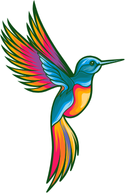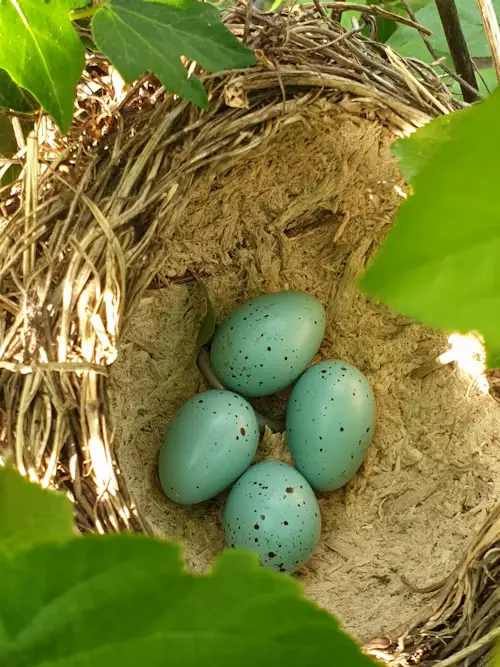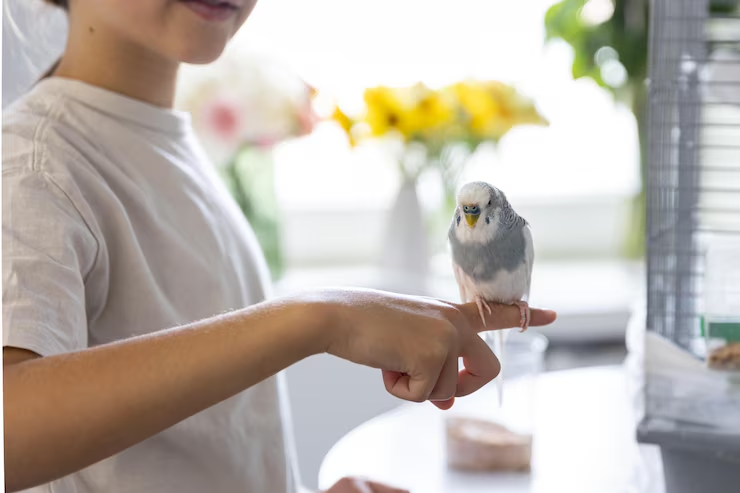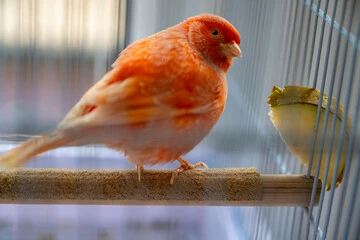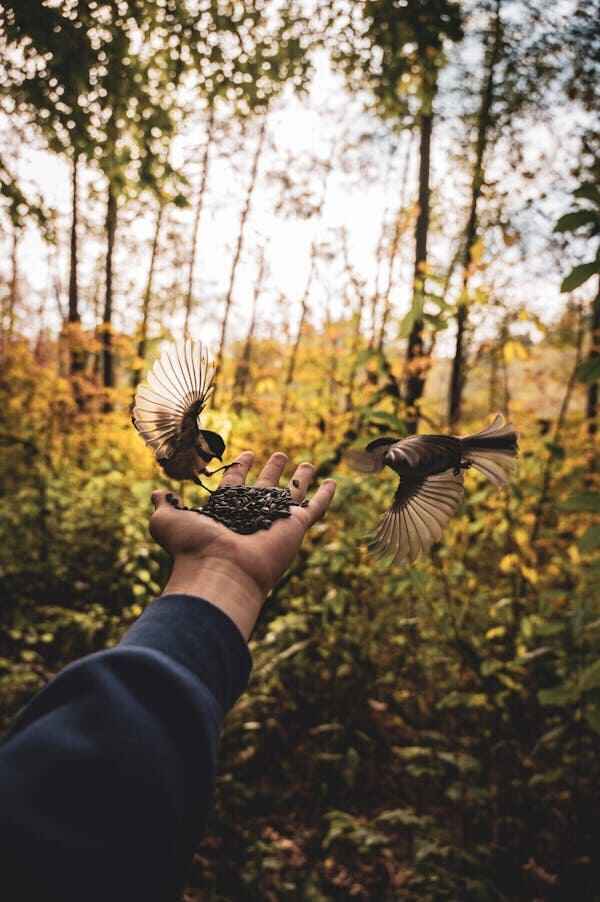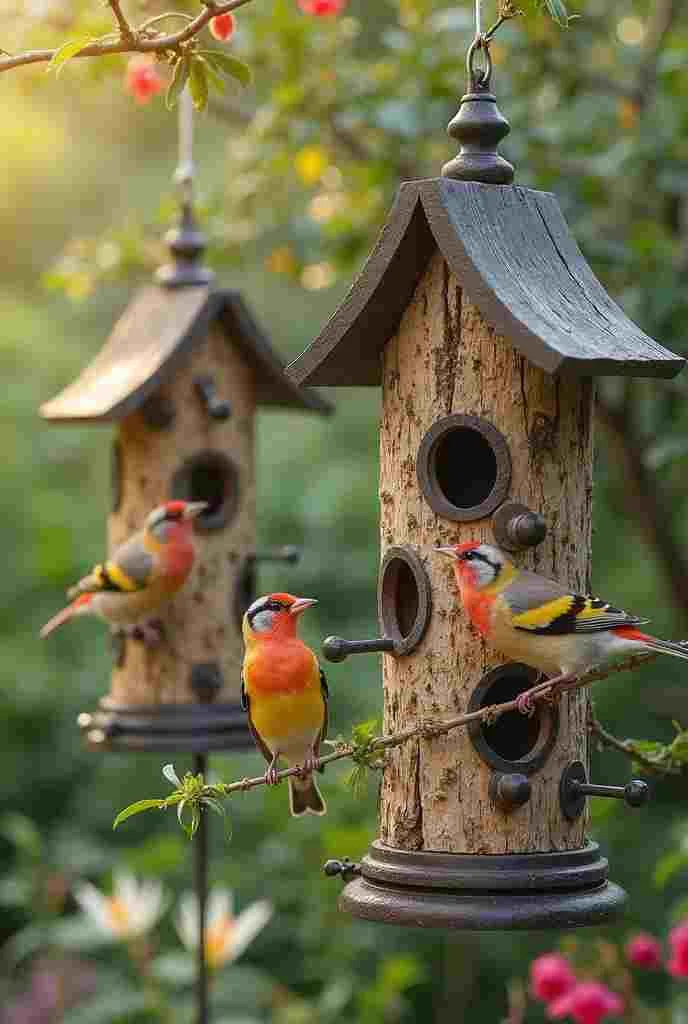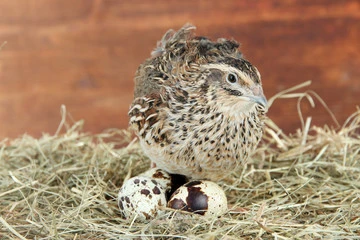Yellow Budgie Bird: Ultimate Guide for Best Happy Care
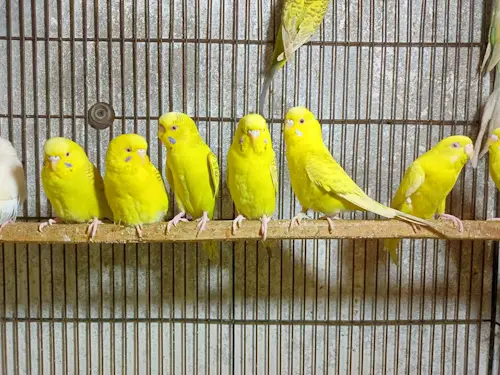
Introduction
Ever noticed how a sunny yellow budgie bird can instantly brighten your day? These little bundles of joy aren’t just eye-catching—they’re playful, intelligent, and full of personality. Whether you’re a first-time owner or a seasoned bird enthusiast, understanding your yellow budgie’s needs is key to keeping them happy and healthy.
In this guide, we’ll cover everything you need to know, from yellow budgie care and yellow budgie behavior to their ideal yellow budgie diet and yellow budgie lifespan. By the end, you’ll be a pro at nurturing your feathered friend!
Table of Contents
What Makes Yellow Budgies Unique?
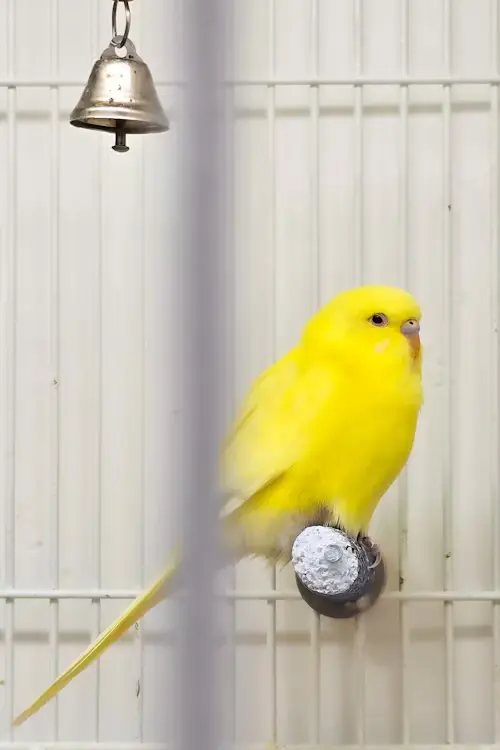
The Genetics Behind Their Color
Yellow budgies are often lutino, a type of color mutation where the bird lacks dark pigmentation, resulting in a vibrant yellow (or sometimes white) plumage with red eyes. These mutations stem from selective breeding, making them a popular choice among pet owners.
Yellow Budgie vs. Canary: How to Tell the Difference
It’s easy to confuse a yellow budgie with a canary, but there are key differences:
| Feature | Yellow Budgie | Canary |
|---|---|---|
| Size | Slightly larger (6-8 inches) | Smaller (4-5 inches) |
| Beak Shape | Thicker, parrot-like | Slim, pointed |
| Personality | More interactive, vocal | Often shy, less social |
Yellow Budgie Bird Care: Keeping Your Feathered Friend Happy
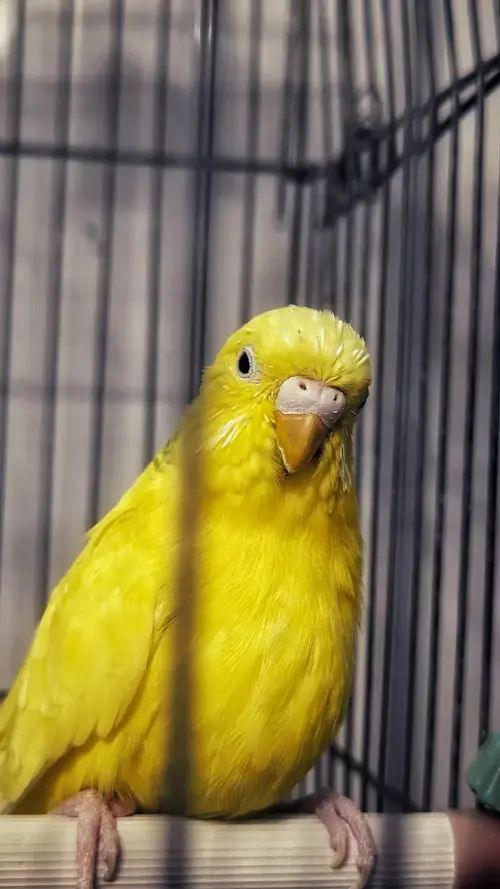
1. The Perfect Cage Setup
- Size matters: Minimum 18x18x24 inches for a single budgie.
- Bar spacing: Should be no wider than ½ inch to prevent escape or injury.
- Perches & Toys: Provide different textures and sizes to keep feet healthy.
2. Temperature & Lighting
- Budgies thrive in **65-75°F (18-24°C)**—avoid drafts and direct sunlight.
- Full-spectrum lighting helps enhance feather color and mood.
3. Socialization & Bonding
- Spend at least 30-60 minutes daily interacting with your budgie.
- Introduce new birds slowly—aggression can occur (see this Reddit discussion).
Need more tips? Our budgie care guide dives deeper into daily routines.
Yellow Budgie Behavior: Understanding Your Pet
Common Behaviors & What They Mean
- Chirping & Singing → A happy, active bird.
- Flapping Wings → Could be excitement or a need for exercise.
- Biting → Sometimes fear-based; requires patience to tame.
Aggression & Territorial Issues
If your yellow budgie becomes aggressive with a new bird, give them time to adjust. Often, dominance issues settle down once they establish hierarchy.
Yellow Budgie Diet: Feeding for Health & Longevity
What to Feed
| Food Type | How Often | Notes |
|---|---|---|
| Seeds | 70% of diet | High-quality budgie mix |
| Fresh Veggies | Daily | Spinach, carrots, broccoli |
| Fruits | 2-3x/week | Apples, berries (no avocado!) |
| Pellets | Optional | Fortified with vitamins |
Foods to Avoid
- Chocolate
- Caffeine
- Onions & garlic
A balanced diet directly impacts your yellow budgie lifespan, so feed wisely!
Yellow Budgie Lifespan: How Long Do They Live?
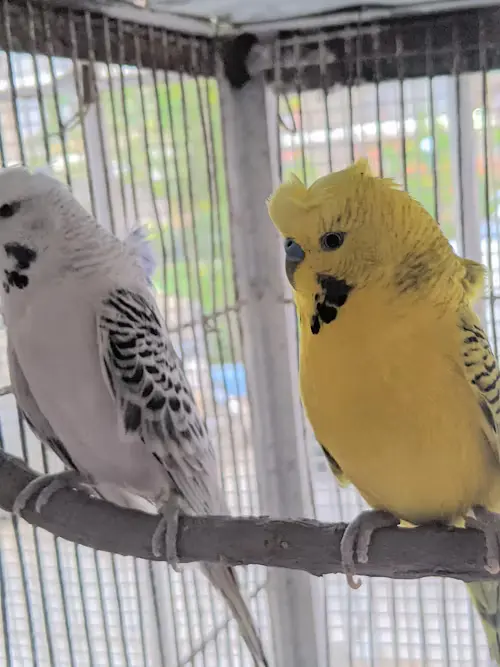
With proper care, yellow budgies typically live 5-10 years, but some reach up to 15 years! Here’s how to maximize their lifespan:
- Yearly vet check-ups
- Clean water daily
- Mental stimulation (toys, puzzles, social interaction)
Frequently Asked Questions (FAQs)
Q: Why is my yellow budgie losing feathers?
A: Could be molting (natural) or stress-related. If excessive, consult a vet.
Q: Can budgies talk?
A: Yes! They mimic sounds—some even learn simple words. Check out this guide on understanding their sounds.
Q: What should I do if I find a lost yellow budgie?
A: Secure it safely and check local groups—like this Reddit post for lost bird tips.
Conclusion
Your yellow budgie bird isn’t just a pet—it’s a delightful companion with unique needs and quirks. By providing the best yellow budgie care, understanding their behavior, feeding a nutritious diet, and ensuring a long lifespan, you’ll create a happy, healthy life for your feathered friend.
Got a yellow budgie story? Share it in the comments below—we’d love to hear from you! And don’t forget to explore more budgie-related guides on our blog. 🐦💛
